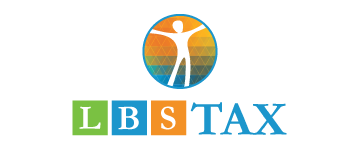
Tackling Taxes With Software
We’ve written on this topic in the past, but even in the relatively short period of time since our original article, the landscape of tax-preparation software has changed dramatically. The algorithms have gotten more sophisticated, error rates are minimal, and in most cases – tax software is a safe bet for a large portion of Americans.
The reason for that is because most Americans don’t actually have tax circumstances so unique they’re incomputable. Even for the self-employed, whose tax situations tend to be a little more complicated and exposed to penalty, tax accounting programs are enough to get the job done.
It would seem, then, that digital tax accountants are pretty infallible and great for just about everyone. But not quite.
The Tax System Is Tangled
Think about the last time you did your taxes online. The chances are that you put your information into the program, clicked a few times and learned what return you’ll be receiving (or not receiving) within minutes.
A few things happened when you entered your information into the software. First, it ran some basic arithmetic.
With every new value entered, the program recalculated what you paid and what you owe. You were either delighted to see your refund go to green or disappointed to see it drop callously into the red (That may just be part of the process some years).
Sophisticated programs will even import your previous year’s information, as well as communicate with your employer(s) to complete your wage information for you. No doubt, a lot of these programs make taxes easy and may even be a little bit fun.
They’ll even have a neat feature that tells you the likelihood of an audit based on the information provided. As expected, most users will learn that they are well-protected and insulated from tax trouble down the road.
Close to that feature, however, is an option for extra protection of your taxes. And it’s just about there, that some flags might be raised with some people.
Tax Software Relies on Expertise
That protection can be thought of as a kind of insurance in the event that the information entered triggers an IRS audit.
The reason for that is because the number you’re being shown at the end of your tax filing is a probability, and while it must be based on 100% factual data, it’s not actually 100% protection from any mishappenings with your taxes. The result? Intelligent, personalized tax representation is the only thing that can help you if you get audited.

The Difference Between A Tax Accountant and Accounting Software
Regardless of the accuracy of tax software, there are some things that are just better left to a real-life accountant. Where tax software can handle basic income taxes and can calculate your tax return, an accountant can really dive in in a way that goes beyond just getting you the refund you’re owed.
While not necessary for everyone, the value of having a full-service bookkeeper, accountant and tax expert all in one place can’t be overstated. By having a person who knows the ins and outs of your unique tax situation or your business, you’ll have a guarantee you see the greatest return and lowest taxes owed.
With a dedicated tax accountant, you don’t have to worry about filing your taxes last minute or worry that the information was entered accurately. Your audit-protection will come built in to your price and simply won’t be matched by any human add-on to software.

